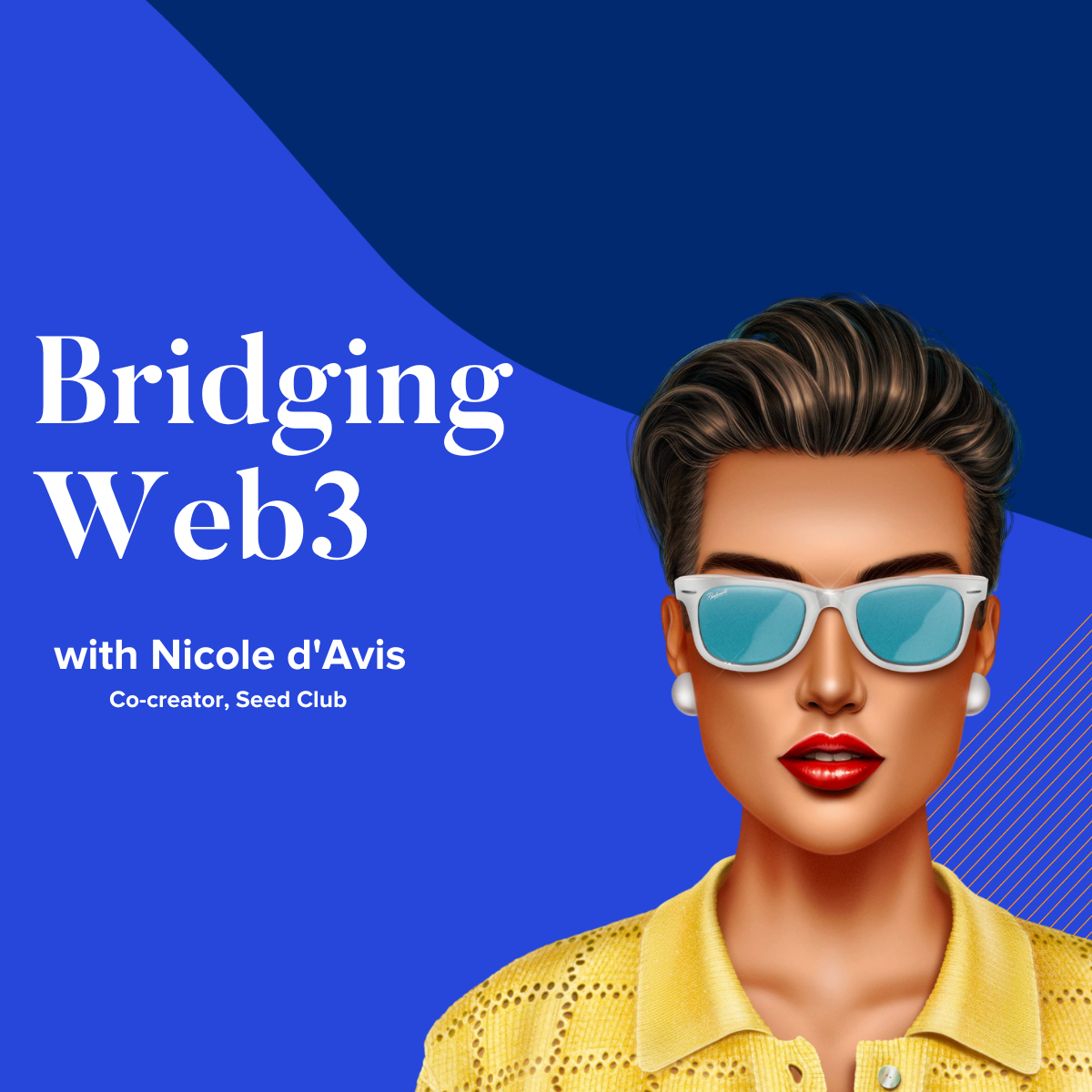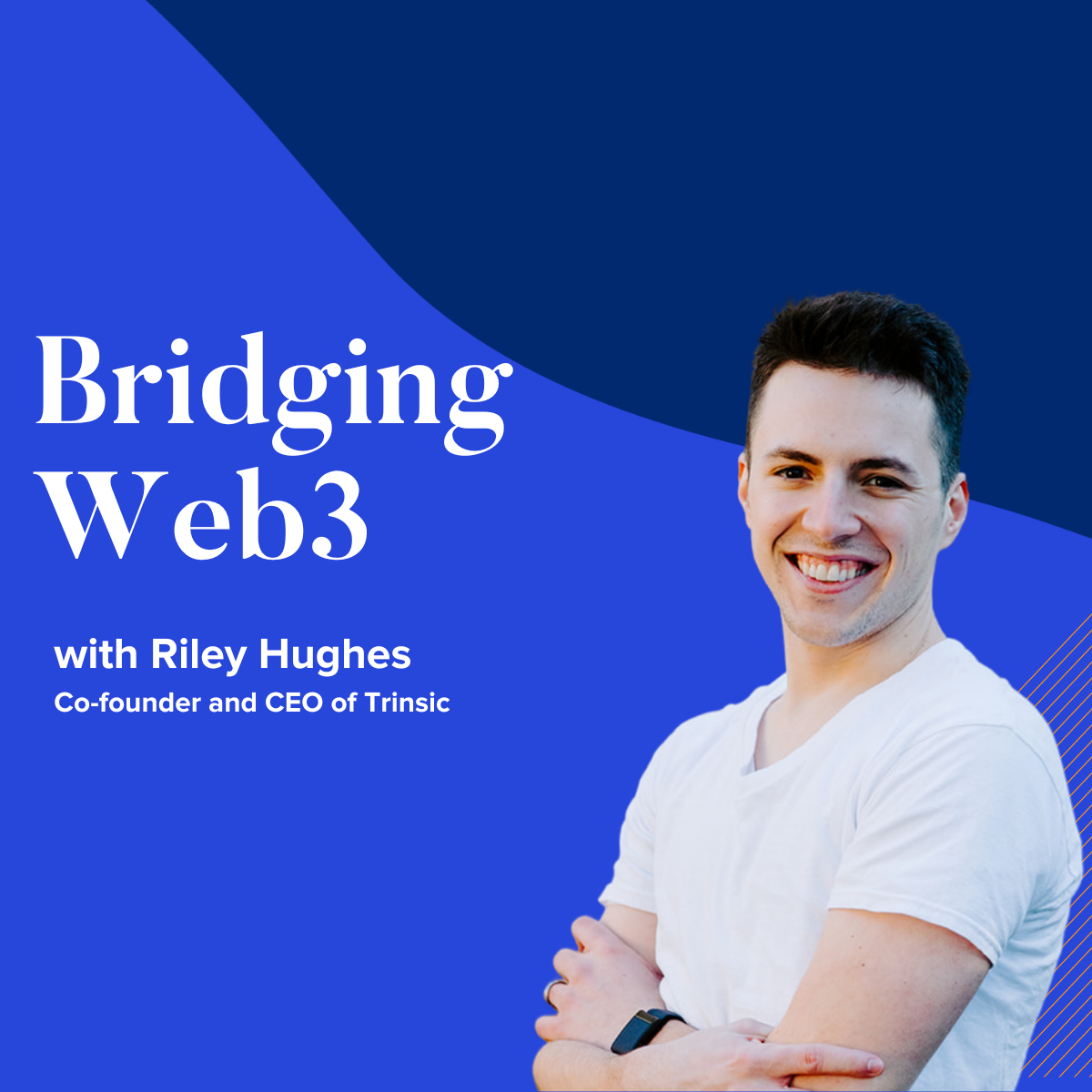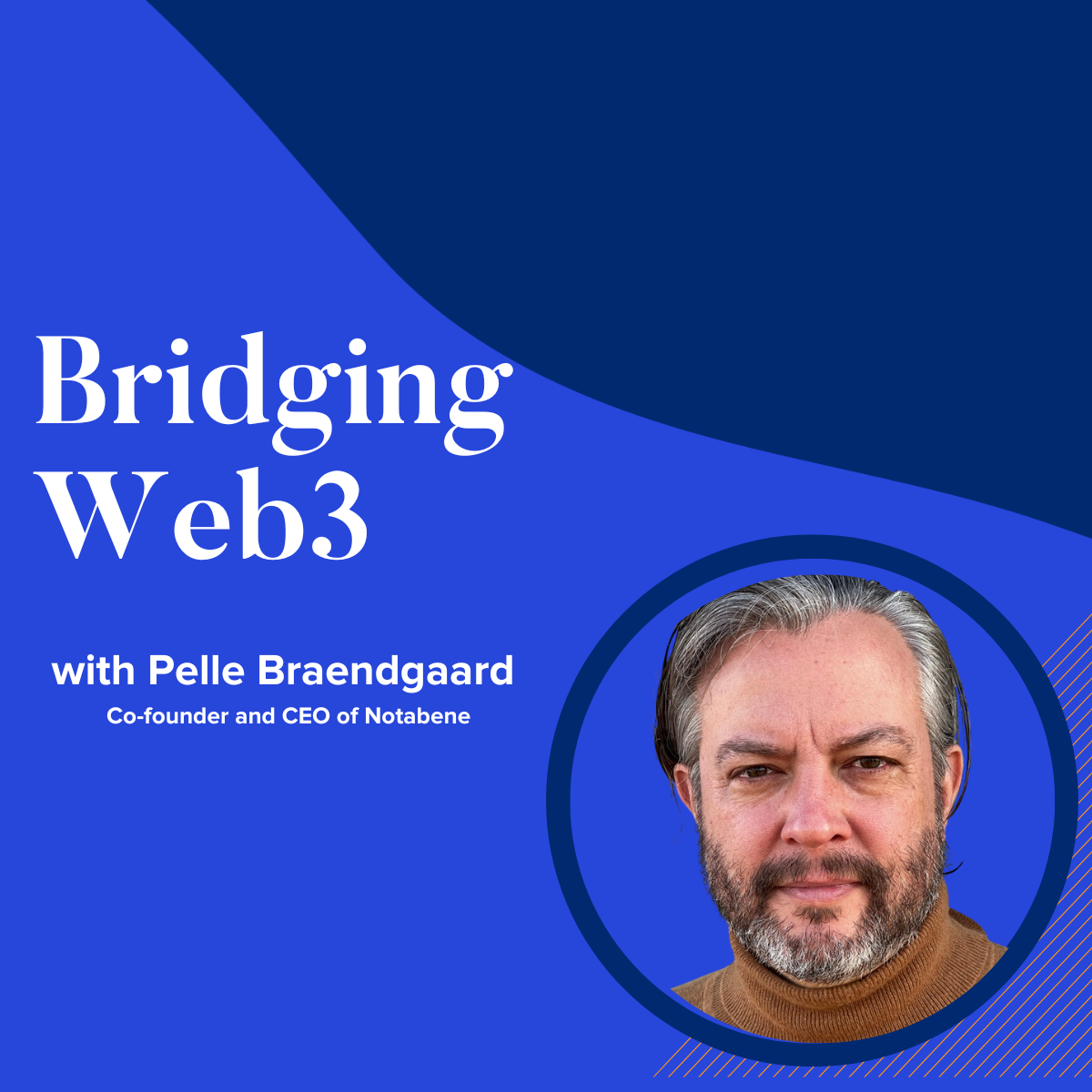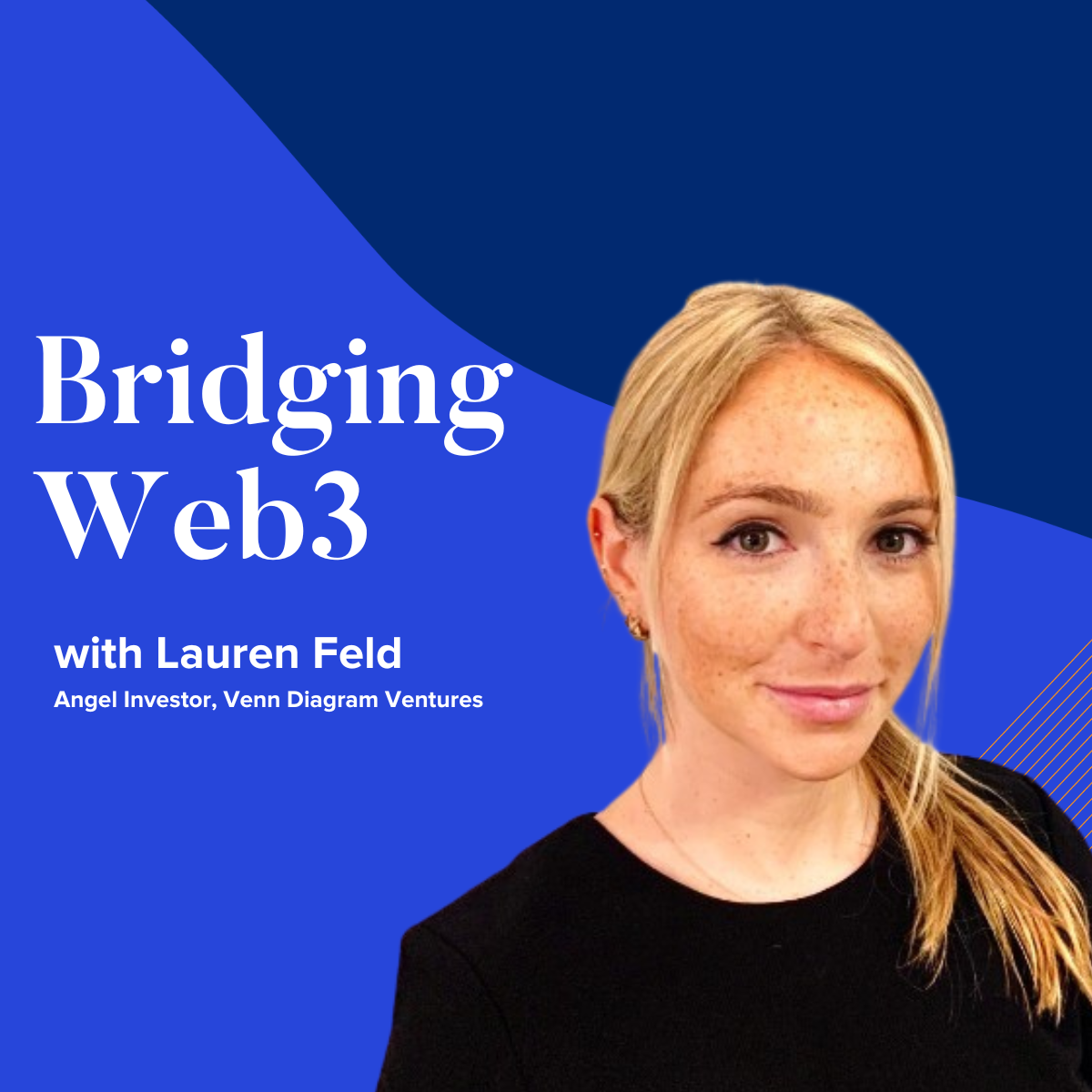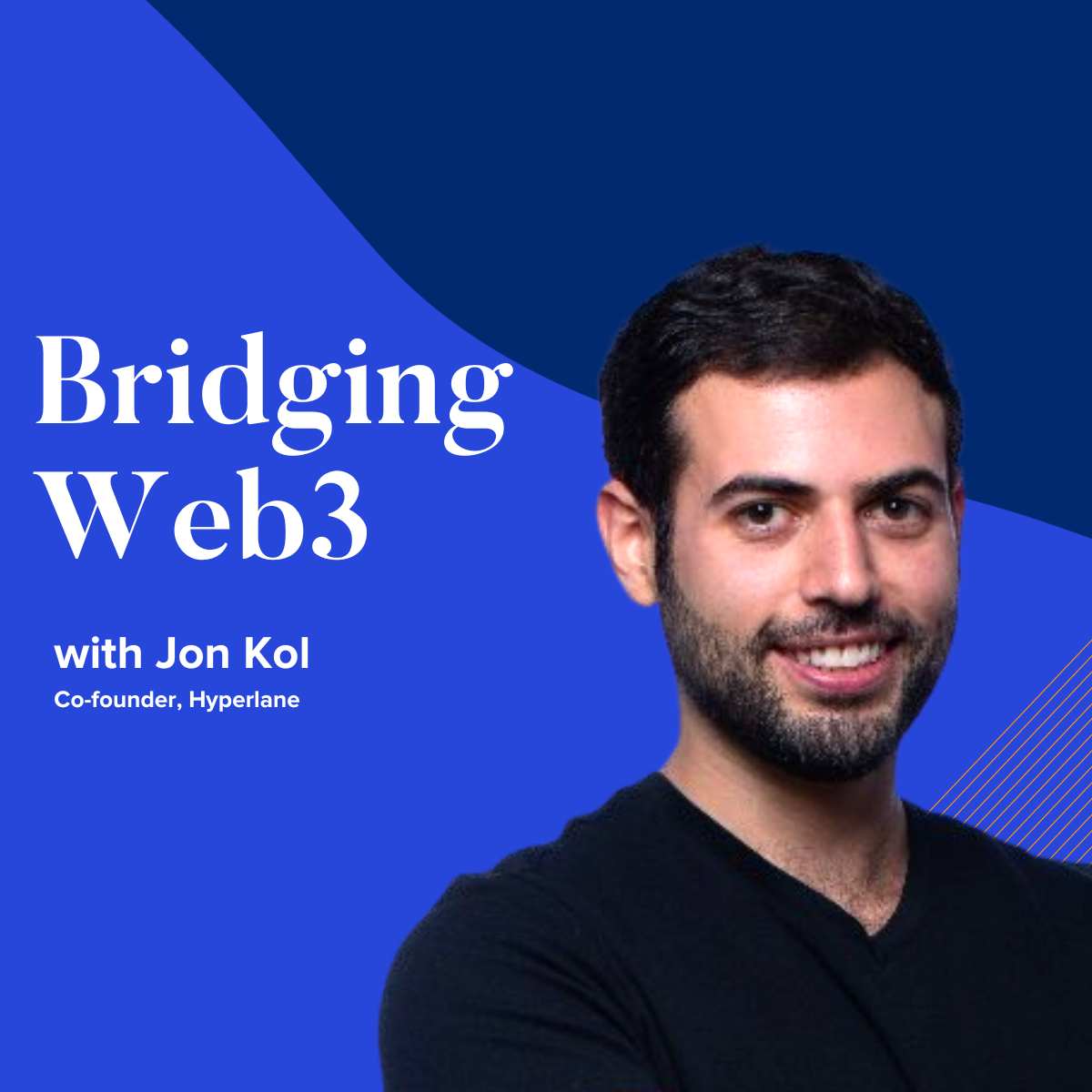All about DAOs and community in web3 with Seed Club's Nicole d'Avis
- 0.5
- 1
- 1.25
- 1.5
- 1.75
- 2
Jessica Galang: The material and information presented in this podcast is for discussion and general informational purposes only, and is not intended to be and should not be construed as legal, business, tax, investment advice, or other professional advice. The material and information does not constitute a recommendation, offer solicitation or invitation for the sale of any securities, financial instruments, investments, or other services, including any securities of any investment fund or other entity managed or advised directly or indirectly by Georgian or any of its affiliates. The views and opinions expressed by any guest are their own views and does not reflect the opinions of Georgian. Hi everyone and welcome to Bridging Web 3. I'm your host and Georgian's content editor, Jessica Galang. In this series we focus each conversation on just one technology or concept that is important for building Web 3's infrastructure. Our goal is to highlight the building blocks that will make Web 3 more usable and understand the real world opportunities in the long term. In this series, we focus a lot on the tech building, but a big part of getting people engaged in Web 3 is community, decentralized autonomous organizations, or DAOs for short, have emerged as a way to connect people with a shared mission. DAOs have built in treasuries that no one can access without approval from members, and blockchain based rules are baked into the code to define how the organization works and how funds are spent. That's the definition according to the Ethereum Foundation, which we'll put in the show notes. The idea is that trust is built into the operations of the organization. DAOs have the potential to change how people work and collaborate, and here to talk to us about that is Nicole d'Avis, a co- creator at Seed Club. Seed Club is targeted to DAO builders and operators and offers a 12 week accelerator to help DAOs get off the ground. We're talking to Nicole about how DAOs work, the opportunities they provide and the importance of community in the success of Web 3. So welcome Nicole.
Nicole d'Avis: Hello, and thank you for having me.
Jessica Galang: So excited to chat with you. So to kick off, can you give us a brief on what DAOs are and the opportunities you're excited about?
Nicole d'Avis: Yeah, of course. I think that we're at a point where DAOs and the definition of DAOs is perhaps getting to be as expansive as the definition of an organization or a company because you look across the ecosystem and you see some with, for example, a pooled set of resources and the group is quite decentralized. They really may not have much more of a coordinating agent than a Telegram chat, and they're really just looking at how to deploy resources toward investment or toward sort one really specific goal. And then you look sort of on the other spectrum and you have organizations like Cabin or Krause, which are two projects that have come through our accelerator or C Club itself. We have these really unique goals, whether it's decentralized node of cities and living spaces or working together to buy an NBA team or being a network of DAO builders and operators ourselves and accelerating projects towards success. And these are really complex missions and we're going about it in this way of using, again, a decentralized organization with pooled capital that we make decisions collectively on. And so I think that the same way that it would be, I suppose hard to define a company or an organization, I think it's getting more and more challenging to define a DAO, but there is that common belief that the people who are involved in building the organization and building toward the mission, toward the goals also have shared governance and control of the resources that have come on. And so anybody who's contributing and who's a part of that is a part of the value that's being created.
Jessica Galang: Can you share some examples of how DAOs can be helpful for bringing people together or changing how people collaborate?
Nicole d'Avis: So I came at this generally through the music industry and I've worked with artists myself, artists and creatives for decades now. And we all went through the Web 2 boom of social media platforms and we all participate in them where we're part of groups and communities. And what I think has been really fantastic is that we've made these digital connections and there's people and there's groups and communities that many of us are a part of online and for whatever reason, whatever hobby or interest that you have. And it's great because we can connect across digital realms and build value together, build community together, and sometimes even build businesses or initiatives or something successful. What has not been great has been that the media companies, the social media companies where all of that community building is hosted are ultimately the ones that are benefiting from us coming together. And we've really had to depend on those intermediaries, on social media companies to be the place where we connect and where our voices can be amplified, where our work can be amplified. And so I think that one of the core things, especially in a lot of the work that we do at Seed Club is that we're taking those communities that previously would've lived on Facebook or Instagram and we're giving them other opportunities to coordinate together that's not dependent on a closed platform that we don't benefit no matter how much time and resources and energy we put into building. And so rather than the work ultimately benefiting those platforms within these new organizations, you can build sort of anywhere and that really obviously is a nod to the blockchain technology that underlies all of this. You can build anywhere, you can be in multiple platforms, but ultimately it's the community that's holding the value that they're creating.
Jessica Galang: Awesome. So say I'm a creator working in a DAO, how would value creation work? Am I compensated through tokens or in other ways?
Nicole d'Avis: Yeah, it's a really good question and it's something that we're continuing to experiment with and I think that as markets and ecosystems continue to change, it's something, it's a conversation that continues to evolve. So within communities, each one is going to be different. Obviously we all live in a Fiat world where we pay our bills in Fiat, and so ultimately people need currency that is exchangeable with wherever they're living so that they can pay bills and make a living and live in this Fiat community that we're all a part of. Having said that, each community often does have a token, and those tokens often have utilities aside from perhaps compensation, sometimes compensation is part of it, but it also provides access and governance and control over that shared resource. Maybe to take a step back from the compensation specifically, the communities do have a token that represents ownership in whatever it is that they're building, and it does also represent some type of governance and say in what it is that they're doing. And so if a community has a treasury of resources that they've raised through revenue generative activities, through pooling of funds, through various sales of services or goods, then they can decide what they want to do in the future with those resources. And so it could be compensating contributors, it could be putting grants out to further the work, or it could be holding onto those resources to then continue building out what it is that they're doing. When you look sort of tactically at, for example, compensation with members of a DAO, it really varies on the work that's being done and a, how many other resources that DAO has and how the token is used within the community.
Jessica Galang: I was reading a piece from Steph Alinsug, on your team where she talked about Web 2 prioritizing the explosive growth at the expense of users. Can you explain how Web 3 empowers builders in comparison to what we've seen in Web 2?
Nicole d'Avis: When we look at what I was talking about previously where entities like Facebook and Instagram, ultimately they're making revenue through ads and through exposure to ads, and so their goal is to have as many people come in as quickly as possible so that there's the most views on whatever ad is being run. And so communities have also been incentivized and we as individuals have been incentivized through all of the various tech tools to have just as much growth as possible and that those have sort of been the metrics. I think that what's interesting with Web 3 is that the community can itself determine what its success metrics are. And so if you look at a community that exists really solely to exist to be a collective of individuals, success is that they are a community. Success is that they exist, that they're able to propagate the reason that they exist and the things that bring them together and ultimately success is defined by those folks in the room. Certainly if you're developing a product, a tool, the success metrics are going to be better and let's not obviously ignore that there is investment in this space and there is a expectation of return for many communities included, many of the people that are building in Web 3. What I think is different is that the individuals are also in that same governance relationship, decision- making relationship about what success looks like. And so what has changed is that they used to be in different rooms. We as users were in a different room with the people building the product who were in a different room with the people investing in the product. And so those were the people making the decisions. The people who had ultimately either put resources in or who had been early in starting whatever it was that was being built, and then a large number of the people building the value and also sort of partaking in whatever it was, really weren't part of that decision- making relationship in any large part or perhaps at all. What has now changed is that we are all in a digital room together figuring this out, and so sort of going back to being able to have hard conversations or being able to have the candor where you ask something that's important, even if you might be scared, because again, we're not used to being sort in those rooms altogether. It's something that has completely changed where everybody is actually really in community with each other and the token is the symbol of that membership.
Jessica Galang: I think this is a good segue to talk a little bit about Seed Club. How does Seed Club work and what do you do to set up DAOs for success?
Nicole d'Avis: We are a network for DAO builders and operators, and what that means is our core work is supporting DAO builders to launch DAOs or other crypto native, internet- native organizations themselves, and then to support the success not only of those individuals but of the network ecosystem as well. So we do this through our accelerator. We do this through cultivation, which is our alumni program. So after they go through a 12 week accelerator, they continue on to receive services, and then we're continuing to build out additional programs as well to serve individual builders. And then we have an entire media and product team that supports both the proliferation of our work and also making sure that we have tooling that supports the work that we're doing and supports us to be able to of work in this Seed Club native way. We have run, we're in the middle of our fifth accelerator. Our demo day is December 16th, which we're very excited about. We have 15 projects that are going to be sharing their 12 week journey with us, the learnings, the building, the accelerated progress, and so yeah, we hope that you'll join the hundreds of people that come and celebrate the progress with us on Demo Day. It's a fun, metaversal, unique experience. It's hard to describe if you haven't experienced it, but yeah, it's going to be very, very fun. I think RSVPs are open, so yeah, December 16th.
Jessica Galang: All right. Excited to learn more about what people in Seed Club are building. So you have several offerings that are kind of, they seem to be tackling different areas of DAOs. Can you talk about what Seed Club offers, tackle specific challenges that DAOs are facing and how you help them overcome those challenges so that they can really scale up?
Nicole d'Avis: I think what's really interesting is that the questions and challenges that many organizations face are pretty core and pretty similar. Some of the big topics that we look at are first of all how to understand what the token is, and that piece, I sometimes liken it to those magic image pictures that were sort of all the rage in the nineties where you had to squint a certain way and you would see it and then you know you would lose the focus and it would go away. And it's one of those things of, until you sort of know how to look at it and how to understand it and that it's different than, for example, something that you're going to get a royalty or a dividend from. It's not that, it's different than simply access and simply you can get this or you can get that, for example, like a frequent flyer pass or something like that. It's different than that. It goes beyond both of those. And so that's something that we spend a lot of time on is just simply understanding what the token is for and what it is that we're building, what it is that we're actually doing here that is fundamentally different than the way organizations have been built prior. So we spend a lot of time on that. The other side is we spend a lot of time looking at community and looking at who is your community, who are you really building with and for and how are you engaging them, and how are you building that meaningfully? How are you building that authentically? There's certainly other topics like legal for example, that we bring in some of our experts to speak on fundraising, which is an evergreen concern and question. And then we bring in folks to talk about media and how to develop your media presence, and we spend a lot of time on leadership and what it means to lead a decentralized organization, which can almost feel like an oxymoron. And so there's all of these aspects that we know each of the communities are going to arrive at these really thorny questions at some point, and so we provide them the building blocks. We also know that as organizations reach their adolescence and confront new interesting challenges after the 12 weeks with us, they're going to continue to not only depend and come to us with questions, but they're also going to be working across the cohorts. And that's really brilliant is that we have this alumni network where projects that are now a year or a year and a half out and are looking at evolving their token structure where they're looking at maybe a second raise or compensation structures for a growing community of contributors. And these are next level more mature challenges and questions. These more nascent organizations that have come through one of our more recent cohorts are able to look to them for answers on these questions that they're now facing. And so it's a really beautiful network that we have of these now multi- generational DAOs supporting each other.
Jessica Galang: Yeah, it's really interesting too because as you're talking it sounds like since it's such a new space, it's like Seed Club is also evolving as these DAOs are evolving as well. So it must be really exciting for your work to just see how you have to change your approaches and the new things that come up.
Nicole d'Avis: Is it ever. That's our other superpower is that this is not something that we're teaching about or supporting projects to explore that we're not doing ourselves. We are good at this because we are actively participating in it ourselves and very blessed to work with the top folks that are also talking and working on this.
Jessica Galang: It's funny because DAOs of course are used as a tool for coordinating resources towards a shared goal, but I know that there are also challenges with coordinating amongst people within the DAO. Since the idea is that it's decentralized, people are working on different schedules and there are other issues that can come up. How are DAOs approaching coordination challenges?
Nicole d'Avis: I mean, I think that candor is incredibly important and it's not something that a lot of us are comfortable with, but it's very important to be able to talk directly within each community toward the work that needs to get done and understanding is there a shared understanding? Is there a shared vision if there's not figuring out how you align and then driving forward. On a more tactical level, you're seeing a lot of pods, guilds, working groups, et cetera. So that tends to be generally a structure that works really well. We do that at Seed Club. We have a few working groups. We have media, product and then accelerator slash sort of builder facing work and community. And so that does enable work to advance in a streamlined way. I think what's interesting is that what we're seeing is that the alignment between those working groups or the alignment between those pods is where things start to get a little bit interesting and tricky. And so we've been seeing a lot of experimentation with different coordination tactics, whether it's a contributor hour, we do that at Seed Club. It's been really effective where people share out what they're working on and it also, the entire team gets to come together and then there's a ton of writing. I think it's interesting that for such a tech forward space, such a place that is supposed to be sort at the bleeding edge of innovation, we're using something that is so incredibly fundamental to humans, which is sharing work through writing, sharing thoughts through writing. And I think that everybody wishes that they had more time to read and write within DAOs because I think it's one of the key ways that we understand and that we communicate.
Jessica Galang: I like how you brought up that creativity and writing aspect too, because I feel like just in, as I've been researching about Web 3 and the components that are making up Web 3 and some interesting spaces, it's just, I would say DAOs more than other spaces I've seen really rely on creativity and really embrace kind of that collaboration. And something that comes up a lot in conversations with others in Web 3 is that there's this idea that you consent to how your data is used and you can be compensated or you can get value into how your data is used and really have control over that. Is that something that plays a role in DAOs as well in that philosophy?
Nicole d'Avis: I think that the philosophy is perhaps aligned or parallel. I personally find that topic super interesting. It's something I'm very passionate about and it's something that I spent a lot of time when I worked at Berkeley College of Music working with and helping students understand, especially as musicians themselves. And there's a ton of surveillance throughout, not just stuff like Twitter or Facebook, et cetera, but even within Spotify for example, of the users and tracking user behavior and then thinking of different ways that can be used to basically drive certain behaviors. So it's something that I feel personally very passionate about. I think that it's something that is being developed I think somewhat in tandem with a lot of the sort of Web 3 work. One of the really interesting concepts out there right now is decentralized ID, the sort of data backpack. So Disco is doing really incredible work there. For example, I recently got my own data backpack. I'm learning about it. I think that there is kind of this interesting tension between wanting our data to be something that is not being, for example, harvested and used by for profit closed platforms like Facebook, but at the same time, it's not something that any of us really know how to use and manage well. And so I think there's a lot of interesting experiments. I haven't seen enough again, in my opinion, sort of applications yet where it's really something that users understand. I mean, users are still trying to understand how to sell custody of their own assets and how to use a wallet, either a hot or cold wallet well, and so if we're still really early in knowing how to custody our own assets, which is generally something that people, I mean its money. So people are generally more incentivized to know how to store that well and use it well. And we're still in very early days of people being able to do that well, then I think that we're probably quite far away from us being able to custody and store our data well.
Jessica Galang: So just changing tack on that too though, just in the last couple weeks it has been tough on people working in crypto with the collapse on FTX has brought a lot of out sized attention on the industry and for a lot of people who have a long term view and see this as a long term game, I imagine it could be disheartening to see this attention on the space and some of the risks that have come out and some of the hard truths that have come out from this space so if DAOs are about getting people really motivated and excited, from your perspective how do you overcome these really hard challenges and these setbacks, if I could call it that in the space because this space is developing quickly and in tandem with a lot of things and these things happen. So I'm curious, what's the vibe right now on the community, especially from DAOs, and how do you think that people like Seed Club and others move forward?
Nicole d'Avis: There's sort of two ways of looking at it. So the first is, and I tweeted sort of a flippant joke, but it felt very real to me at the time, which was that as this was all crumbling, it was sort of this, she doesn't even go here vibe of there's this person who's come in and is sort of obviously destroying the entire space and yet it's so unaligned with the way that we do things and what we're building on this corner of crypto. And so it's very interesting to sort of be in the same room because of course there's overlap. I mean the token standards and of course even the marketplaces, and we saw a ton of people be impacted either directly or through knock on effects and I don't want to diminish that at all, and my heart goes out to all of the folks that were impacted. At the same time, it's strange that in some ways we are connected through these technical standards because the behaviors and the philosophy couldn't be further apart. And really the reason that we're doing this is actually because of the issues and problems that caused the collapse of FTX and that is continuing to have knock on effects. And so philosophically there's that understanding. Realistically, unfortunately there are real impacts and so a big piece of what we're doing is really doubling down on the relationships and just the network and the understanding that we do have each other to lean on, that we at Seed Club are here for the long term and that we are working in a way that allows us to be sustainable and here for the long term and that we're supporting our projects to do the same. And we're continuing the work around, again, I mentioned earlier communities do have a need for resources, they do have a need for capital. And so working with our communities, especially those that are currently fundraising to have conversations and to find investors and others that are interested in supporting their mission even through these times when things feel obviously a little bit chilled. And so there's both the realization that of course there's an impact despite as much as we'd like to distance ourselves from those practices and that way of working, but we're seeing continued sort of knock on effects with additional news around Genesis and so we know that there's going to continue to be difficult times and that it's something that we're going to need to support our projects on. And so that's when again, that network becomes really important and where it becomes really important to understand what it is that we are doing so that we understand what the difference is and that as we rebuild the space together, we are rebuilding it on this shared philosophy of really why we're here.
Jessica Galang: Okay and as you're looking to the future, do you have any longstanding thoughts on the future of DAOs? Any trends that you're tracking?
Nicole d'Avis: One of the projects that was part of our second cohort was involved in the recent release of the Dot Swoosh, which was Nike's recent campaign and so well that's obviously not a DAO, it's exciting to see that coming into the mainstream and something sort of going out into the world in a way that doesn't feel particularly cringe. I think that there's been a lot of sort mainstream crypto releases that have felt a little bit misaligned. It's really great to see the success for example of Dot Swoosh and I think that those sort of well thought out types of activations are going to continue to help the public understand where the space is going generally. Another topic that has been really interesting for me to both internally think about and understand, but then also seeing it throughout our communities is this perpetual auction or Nouns model and that's been a really interesting catalyst I think across the space because the Noun itself is this little figurine with glasses and it can be very confusing for sort of a non crypto native person to say, " Okay, what is the point? Why is this so expensive? Why would you want to be a part of it? Why is there a new one every single day? Why would you buy it for so much money?" And yet, I think going back to this idea of meme propagation, what's been really interesting is it's basically sort of this project in exploration of a model. And so this idea that a community puts something out every single day that enables that community to work in a truly decentralized way where the token supply is not minted all at once and controlled by a smaller group of individuals, but is rather just built into the contract that it's decentralized by design. And so I think that that has really flipped people's understanding of what it means to come into something that really is decentralized from day one and is just dependent on somebody coming every single day. Anybody can bid on that capital dependent and join this decentralized organization and then figure out, okay, what is it that we're building? How are we going to propagate this, and how are we going to drive the work forward? And so that model, I don't think that that's the end game of DAOs, but it's really interesting to have been doing this now for a year and a half, almost two years and looking at, okay, we had one understanding of how this all worked. We're coming to a different understanding and there's going to continue to be new models. And then I think that maybe the last piece is that we continue to see outside of Web 3 a real focus on workers' rights and worker empowerment. And so I think what's really exciting and interesting there is that the ability and understanding for people to see that whoever's building something should have control and participation in the thing that they're building. And that's a basic understanding. I think that that concept obviously plays really well with DAOs and as we continue to work in digital realms, the dependence on something like a token to coordinate those efforts is really natural. And so my hope is that the same way that email technology has sort of faded to the background and it's not something that we talk about or the ability to have voice over IP, like nobody's really talking about the protocol that allows video and audio to work over the internet. My hope is that a lot of those technologies are going to fade to the background and this is going to just be a normal way that people coordinate.
Jessica Galang: Okay, and one last question because talking about contributions kind of got the gears of my head turning. In some projects where you'd have to put in a certain amount of tokens or a certain amount of crypto to participate, is there a concern that the people who can hypothetically put in more currency will still have more say over projects which would kind of mimic what we're seeing in Web 2 and which I know a lot of Web 3 people are really about democratization of contributions and of just opinions. So I'm curious if that's something that you've encountered in your work at Seed Club or if you've been hearing how people think we can tackle that challenge if it is one?
Nicole d'Avis: Yeah, so whales as they're called in crypto are certainly a thing. And I think that one of the ways that this is being thought of differently is to not have it be something that you can only buy into, or in some cases having it be something that some communities have a nontransferable token that is actually not available on any type of market. And so the only way that you can get that token is by being a part of the community and contributing in a way that the community has deemed valuable. And so again, these are really just technologies. Our sort of superimposing financial structures or superimposing sort of the traditional models is definitely one of the ways that we come to understand what they can do. But ultimately communities are also empowered to decide what they're going to do with those technologies. And so yeah, certainly it's a challenge that a lot of communities look at that when they bring in, for example, when they go through a treasury diversification and so they bring in certain capital and the people obviously that are making those contributions are going to have a sizable participation in the governance. But again, that's outweighed or sort of like unbalanced by people who are contributing and then to the community as a whole. And then as the community grows, that continues to evolve and change. And so yeah, I think that it will continue to be a challenge and a question, but fortunately we have the means to decide how we want to do that rather than just going through one traditional model.
Jessica Galang: For sure. I think that's one of the exciting things about working in an industry that's just so at the cutting edge is because I guess the idea is that you can make whatever decision that you want and you can choose to be different. So yeah, just wrapping up now, I'm curious, is there anything else you want to chat about? Anything that we didn't touch on?
Nicole d'Avis: Well, I'm going to just shill our demo day one more time.
Jessica Galang: Yeah.
Nicole d'Avis: There's no way to really describe the sort of truly metaversal experience that we have. This is not a traditional pitch event. It's not something where projects are looking for investment or there's like a Shark Tank type of setup. It's really about celebrating the progress that they have made, celebrating sort of the niche and the culture of who each of these communities are and then putting out that call to adventure and seeing how our community responds. And so you get hundreds of people in a Discord space. We're going to be moving so that we're not only in Discord, we're also going to be in Zoom. So this is new for us. There's going to be visuals and video which we're trying out, but the Seed Club Discord will persist and that is where a lot of the magic and the vibes and the sort of essence of who Seed Club is. And so you just see a ton of support and positivity echoing out within that community. And what's great is that we also see a ton of support behind each of our projects. And so that's a really pivotal point where our projects have been building in public and working really hard and they finally get to share out this is what we've been doing and this is where we're going. Really excited for that. That's coming in a few weeks. There's also some fun RSVP mechanics, so if you go to our site seedclub. xyz, you'll see a way to RSVP there and you'll see some of the fun little mechanisms that we're playing around with in order to get into the event.
Jessica Galang: I totally appreciate you shilling the demo day because I think especially for a lot of our listeners it's easy to kind of Google and go down the rabbit hole for hours on what Web 3 is, but it's not always easy to know where to start to see what people are doing in this space and what people are building. So a lot of people will definitely be excited for that and we can put a link to the demo day in the show notes. So thank you so much again, Nicole, for joining us and sharing about DAOs and I think we've learned a lot and appreciate you taking the time.
Nicole d'Avis: Thank you so much for having me. It was really fun to chat.
DESCRIPTION
In this episode of Bridging Web3, we’re talking to Nicole d’Avis from Seed Club on what makes a DAO tick.
Seed Club offers a 12-week accelerator to help DAOs get off the ground. We get Nicole’s insight on how DAOs work, the opportunities that they provide and the importance of community in the success of web3.
You’ll Hear About:
● What is a DAO?
● Examples of how DAOs can be helpful for bringing people together or changing how people collaborate
● How value creation works in a DAO
● How Seed Club sets DAOs up for success
● What Seed Club offers to help DAOs overcome challenges
● How DAOs are approaching coordination challenges.
● The role data plays in DAOs
● How to deal with and overcome challenges in the space
● The future of DAOs and what trends Nicole is tracking
● Ways to deal with “whales.”
Today's Host
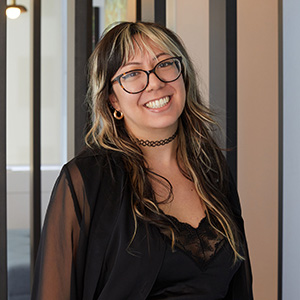
Jessica Galang
Today's Guests

